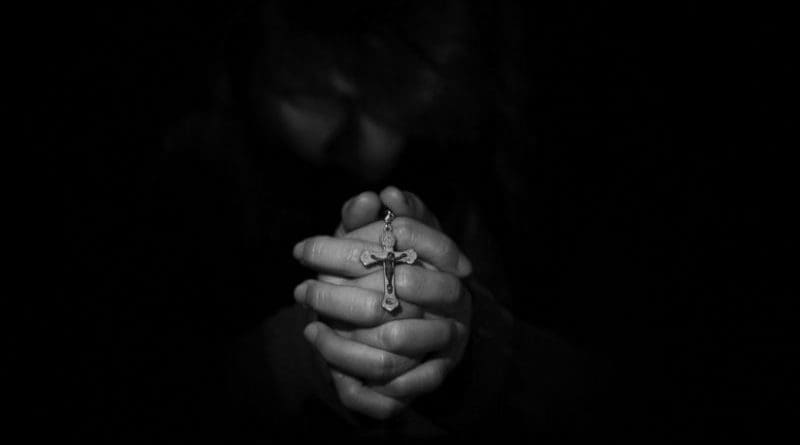Sister Prejean Asks Jury For Mercy To Spare Boston Bomber’s Life
By CNA
By Adelaide Mena
In the defense’s final move to save the life of convicted Boston Marathon bomber Dzhokhar Tsarnaev, Sister Helen Prejean asked the jury not to execute the young man.
The man responsible for the Boston bombings is “genuinely sorry for what he did,” testified Sr. Prejean on May 11 before a federal jury. “He said it emphatically. He said no one deserves to suffer like they did,” she recounted of Tsarnaev.
“I had every reason to think that he was taking it in and that he was genuinely sorry for what he did.”
Sr. Prejean was the last of 44 witnesses heard in the sentencing trial for Tsarnaev after he was found guilty of all 30 charges he faced for participating in the bombings at the April 2013 Boston Marathon.
The attacks, which he conducted with his elder brother Tamerlan, killed three people and injured more than 260. Tamerlan died in a shootout with police days after the bombings.
Instead of facing execution, Tsarnaev’s defense is asking that the young adult, receive life in prison without parole as a punishment for his actions.
Sr. Prejean, a member of the Congregation of St. Joseph since 1957, has been a longtime advocate against the death penalty following her ministry to prisoners on death row. Her life and ministry was portrayed in the 1993 Academy Award-winning film “Dead Man Walking.”
She began meeting with Tsarnaev in March at the request of his defense team, and continued to meet with him, last seeing him only days before the testimony.
Challenging the prosecution’s narrative that Tsarnaev has no remorse, Prejean told the jury that the young man “kind of lowered his eyes” when speaking about victims and his “face registered” what he said about them.
She testified that indeed Tsarnaev felt remorse for his actions and that in her opinion this regret was “absolutely sincere.”
“It had pain in it, actually,” she said of his face, when his actions were brought up. “When he said what he did, I knew, I felt it.”
Sr. Prejean also said she was moved and concerned by the defendant’s age; he was 19 at the time of the bombings. “I walked in the room, I looked at his face and said, ‘Oh my God, he’s so young!’” she said of their first meeting.
The religious sister also revealed that she and Tsarnaev had discussed their religions, saying that she “talked about how in the Catholic Church we have become more and more opposed to the death penalty,” and that he was “very open and receptive” during these talks.
Sr. Prejean is one of many Catholic voices who have petitioned the court and the public to not take the life of Tsarnaev in retaliation for the others lost during the bombing.
On April 7, the Catholic bishops of Massachusetts issued a joint statement reaffirming the opposition of the U.S. Conference of Catholic Bishops to taking a life if there are other ways for society to protect itself.
“The defendant in this case has been neutralized and will never again have the ability to cause harm,” the bishops wrote. “Because of this, we, the Catholic Bishops of the Commonwealth of Massachusetts, believe that society can do better than the death penalty.”
Bill and Denise Richard, who are Catholics and the parents of the bombing’s youngest victims: 8-year-old Martin Richard, who passed away, and his 7-year-old sister who survived with serious injuries, also oppose the death penalty in this trial.
They stated that if Tsarnaev were to receive the death penalty, their family’s pain would continue rather than end.
“We understand all too well the heinousness and brutality of the crimes committed. We were there. We lived it,” wrote the Richards in an April 16 column for the Boston Globe. “We know that the government has its reasons for seeking the death penalty, but the continued pursuit of that punishment could bring years of appeals and prolong reliving the most painful day of our lives.”
“As long as the defendant is in the spotlight, we have no choice but to live a story told on his terms, not ours,” they affirmed. “The minute the defendant fades from our newspapers and TV screens is the minute we begin the process of rebuilding our lives and our family.”

